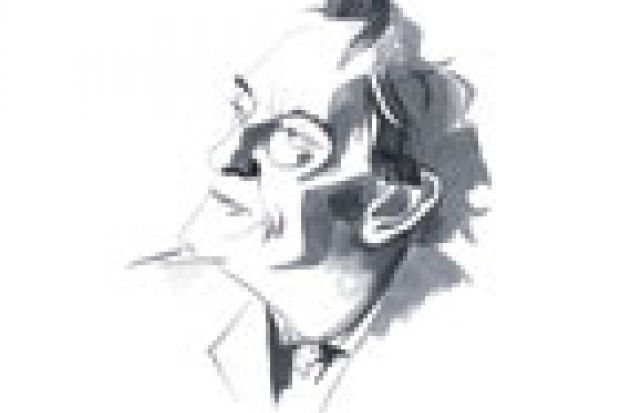“Had you heard of Russellville before we asked you to come here?” I was ashamed to look the reporter from the Russellville Courier in the eye, because, although I had been to Arkansas twice before, this small, hubless community in hog-rearing country had previously escaped my notice. I affected interest in the enormous breakfast that lay before me. The fried eggs stared back accusingly. The two round, golden scones - or “biscuits” in US English - duplicated the stare. I turned to the twin bowls of glistening grits and “country gravy” - a thick bechamel studded with bits of bacon and sausage - but they only seemed to redouble the reproach with even wider eyes. I could prevaricate no longer.
“No,” I admitted. I had, however, heard of the institution I am visiting in Russellville, Arkansas Tech University, and the man I am here to honour, David Krueger. Both are remarkable examples of why the US has the best higher education in the world. The Tech is one of the many heroic institutions that, rooted in local and regional communities, open their doors to people with modest opportunities and lofty ambitions. The Tech helps to make the American Dream accessible to students who start off with few advantages and many burdens. And David Krueger - if love could be computed - would, I suspect, be the world’s best-loved professor.
He retired a year ago, after 50 years of continuous service in the history department at the Tech. When he joined, it was still called Arkansas Polytechnic College, with fewer than 2,000 students. There were still people locally who remembered how it started, in 1909, as an agricultural secondary school. Farming students still work the rolling land around the campus and tend the fat cattle that graze there. David saw the place diversify into a regional powerhouse of learning and research, with 10,000 students and a dozen strong graduate programmes. The campus grew, not just because the state legislature matched student demand - gradually, sometimes fitfully, often grudgingly - with funds, but also because the alumni rallied round, just as they do at rich, private universities in the US, with supplementary funds. The newest embellishments display the results. The library, zoot-suited in elegant pilasters, defers to the original architecture with wry, Po-Mo, colonial-classical humour. Six hundred newly planted, mature trees - the gift of a couple of alumni who fell in love when they were students here - link the buildings with geometrically arrayed boulevards.
David Krueger, I suspect, is the place’s greatest treasure. When he started work, you did not need a PhD, and he never bothered to get one, or to seek preferment, or to stack library shelves with monuments to his own scholarship. He pursued the vocations of teaching and learning together, inside his own classroom, rarely reaching beyond it except to his colleagues and the thousands of former students who kept in touch with him after they graduated. The young man from the Russellville Courier is typical of them. He took seven courses with David, even though, he says, “I didn’t think I was interested in history,” because he liked the professor so much and learned so much from him.
David became a living legend invulnerable to destruction by direct acquaintance. Almost everyone he taught says the same things about his impact on them. Apparently effortlessly, he captured their attention. He alerted them to the previously unglimpsed fascination of ancient Greece and Rome. He connected the sons and daughters of 20th-century hog-farmers with their otherwise unacknowledged roots in classical antiquity and the humanist tradition. He rewarded and therefore inspired their efforts. He opened new worlds. He radiated charisma and attracted love. Some of the tributes his last students left on the web when he retired are touching: “He is sooo sweet,” “He has the cutest smile of anyone,” “He loves to teach so much that it just shows,” “I wish he was my grandfather.” He won more of the state’s annual awards for excellence in teaching than anyone else in the history of Arkansas. A donor has endowed a lecture series in his honour - which is why I am here in Russellville.
Everyone asks the secret of David’s success - even colleagues who know him well, even students who experienced the secret and could not fathom it. Jokingly, he disavows the existence of either secret or success. Former pupils mention accomplishments that are rare but ought to be routine: rigour and discipline, tempered by humour and kindness; difficulty disarmed by clarity; high standards made attainable by help; the wizardry of fluent, noteless lectures and perfect timing unaided by a watch; the magic of mastering all the names in bafflingly large classes, and recalling and recognising all the students for years after they leave. When you meet him, the octogenarian sparkle discloses something of what makes him special. Underlying it all, however, is abundant evidence of what makes a good teacher - a happy man, whose very happiness convinces young people that his life and mind are more interesting than their own. Now David cultivates his garden. I am sure it will flourish as much as the classroom he cultivated in Russellville for the past half century.
Register to continue
Why register?
- Registration is free and only takes a moment
- Once registered, you can read 3 articles a month
- Sign up for our newsletter
Subscribe
Or subscribe for unlimited access to:
- Unlimited access to news, views, insights & reviews
- Digital editions
- Digital access to THE’s university and college rankings analysis
Already registered or a current subscriber? Login
